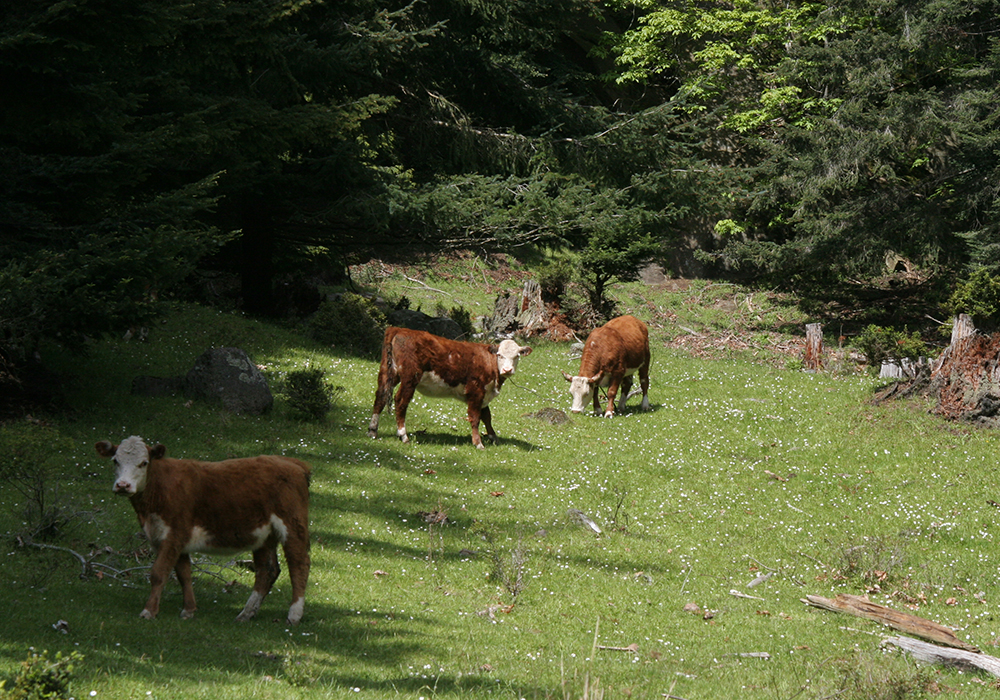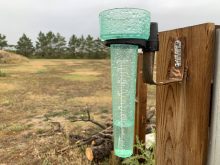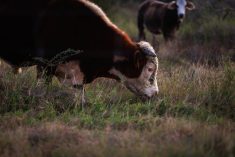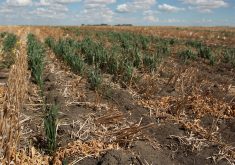Producers were keeping an eye on unusual weather conditions this fall that have affected much of British Columbia less than a year after some of the worst flooding in provincial history.
Warmer weather has delayed the return of cattle to some ranches, said Kevin Boon, general manager of the B.C. Cattlemen’s Association.
“Out here, we kind of turn the cattle out in the spring and they’ll eat their way up the mountain, and then when it cools off, they eat their way back down and come home,” he said.
Read Also

Why feds imposed EV tariffs
Moe and Kinew have a fight on their hands when it comes to eliminating the EV tariff. Canada has to worry about pissing off the U.S. and Mexico and hundreds of thousands of auto workers.
“Well, it hasn’t cooled off and given them the sign that it’s time to come home yet, and we’re supposed to have all our cattle off the range by the end of October. And I don’t think that’s going to happen for some guys unless we start to get some snowfall to add moisture to start and bring them down.”
More than 150 daytime temperature records were set across B.C. in September alone, and many regions have had little precipitation since July. Drought conditions caused the deaths of thousands of spawning salmon as waterways became too low to support them.
Although the unusually warm and dry conditions this fall have resulted in low stream levels, they haven’t been overly detrimental for the beef industry, said Boon on Oct. 18. Most of the hay is under irrigation and the grass will likely be sufficient to get ranchers through to winter feed.
The weather this fall has helped farmers, said Stan Vander Waal, chair of the B.C. Agriculture Council. Producers in the Fraser Valley and Peace River region, who struggled to get crops seeded in wet conditions this spring, enjoyed a warm summer, he said Oct. 18.
“And to basically finish it off, you could say the harvesting was awesome because the weather was so beautiful … so I guess the long and short of it is the farmers haven’t had any real negative impacts to this point from the drought conditions that we are experiencing.”
However, there is concern about forage crops, which need plenty of water, said Vander Waal.
“We even see even some of the farmers of pastureland still irrigating because if they wouldn’t, they burn up, that’s how dry it is – people putting in those cover crops, or just it’s not germinating in a lot of cases because it’s literally that dry,” he said.
“It’s dusty dry, I should say, but those are not critically important crops in terms of feed for the coming season. The all-important thing is how much rain and how much snowpack do we get through the winter.”
Less than a year ago, B.C. declared a state of emergency on Nov. 17, 2021, due to flooding and landslides that severed much of the province’s road and rail links. Farmers were cut off from feed and veterinary care and couldn’t get goods to consumers.
More than 1,100 farms were under evacuation order or alert due to the flooding, which killed hundreds of thousands of animals ranging from dairy cows to poultry. The federal and B.C. governments announced Feb. 7 that up to $228 million will be provided to producers to help pay for extraordinary expenses from uninsurable damages.
A separate program was launched only six months earlier to provide up to $20 million to B.C. producers hit by unprecedented wildfires and heat waves in summer 2021. Ranchers lost about 1,500 kilometres of fences that will cost as much as $38 million to replace.
Last month, on Oct. 13, the B.C. government encouraged people to prepare for potential flooding. Farmers and ranchers were also encouraged to ensure they have an emergency plan in place, said a provincial statement.
“While atmospheric rivers are common during the fall and winter storm season, extreme weather similar to mid-November 2021 are rare. However, flooding is a common, naturally occurring event in B.C.”
Although climate change is a word that B.C. producers hear all the time, they are used to dealing with it, said Vander Waal.
“I think they make decisions in their cropping and their genetics that you could say navigate the different weather patterns we deal with … We just need to continually be aware of it and continue to adapt to it.”
Contact doug.ferguson@producer.com
















